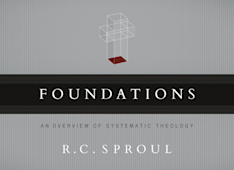The Blessings of Common Grace
Many evangelicals see reality as being divided into two categories: the things of God and the things of the world. While it is true that the Bible says the world is in the power of the evil one and is characterized by the evil desires of the flesh, of the eyes, and by the pride of life (1 John 2:16; 5:19), it remains clear that in the midst of all of this, God has used His mercy, patience, and favor with fallen humanity.
Looking at the world around us, we notice that there isn’t only evil in it. Nonbelievers and people who worship idols enjoy health and prosperity and make helpful medical and scientific discoveries. People who don’t believe in God open day cares, orphanages, and hospitals and make large donations to charity. Nonbelievers are capable of writing books, making movies, composing songs, and making beautiful works of art.
Where does the good that we find in this fallen world come from? The obvious answer is God. First, His image (imago Dei) remains in each person, even if it is marred by sin. Second, God pours blessings on humanity as a whole. This is what we call “common grace,” the good things that proceed from God’s favor on all humankind.
Cain’s descendants developed metallurgy, wind and string instruments, and other things that are good for humanity (Gen. 4:20–22). Jesus said that God “makes his sun rise on the evil and on the good, and sends rain on the just and on the unjust” (Matt. 5:45). He “is kind to the ungrateful and the evil” (Luke 6:35). The book of Psalms celebrates the grace of God over all His creatures: “The Lord is good to all, and his mercy is over all that he has made” (Ps. 145:9). According to James, “Every good gift and every perfect gift is from above, coming down from the Father of lights” (James 1:17).
“Common grace” is different from “special grace” in several aspects. Common grace does not prepare the nonbeliever for salvation and doesn’t produce forgiveness of sins; special grace does. Common grace is given to all; special grace only to the elect. Common grace comes from the mercy of God as Creator; special grace flows from the love of the redeeming God, based on the death of Christ on the cross of Calvary for our sins.
Common grace permits us to relate to nonbelievers in areas where biblical truths are not compromised. Common grace permits us to enjoy discoveries and inventions by nonbelievers and to enjoy works of literature, art, music, and movies that do not offend Christian values and do not lead us to sinful behavior.
However, we must always be judicious when using the things of this world. “But test everything; hold fast what is good,” Paul said (1 Thess. 5:21). Although the context of this phrase is prophecies in the church, the general principle is valid for all areas of life. In this world, good and evil are profoundly intertwined. We need judgment and firmness to reject evil, and humility and wisdom to discern the good and to enjoy it with thanksgiving.
For Further Study
More from this teacher
Augustus Nicodemus Lopes
Dr. Augustus Nicodemus Lopes is founder of Living the Scriptures. He previously served as vice president of the General Assembly and the Theological Education Committee of the Presbyterian Church of Brazil, and as assistant pastor of the First Presbyterian Church of Recife, Brazil. He is author of several books, including The Supremacy and Sufficiency of Christ and Apostles: The Biblical Truth about the Apostolate.






